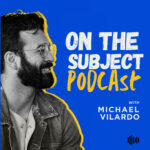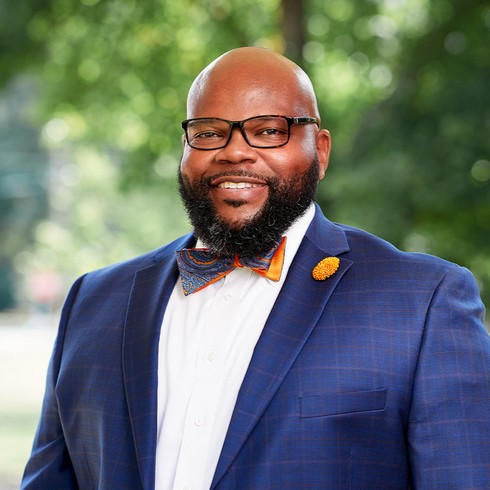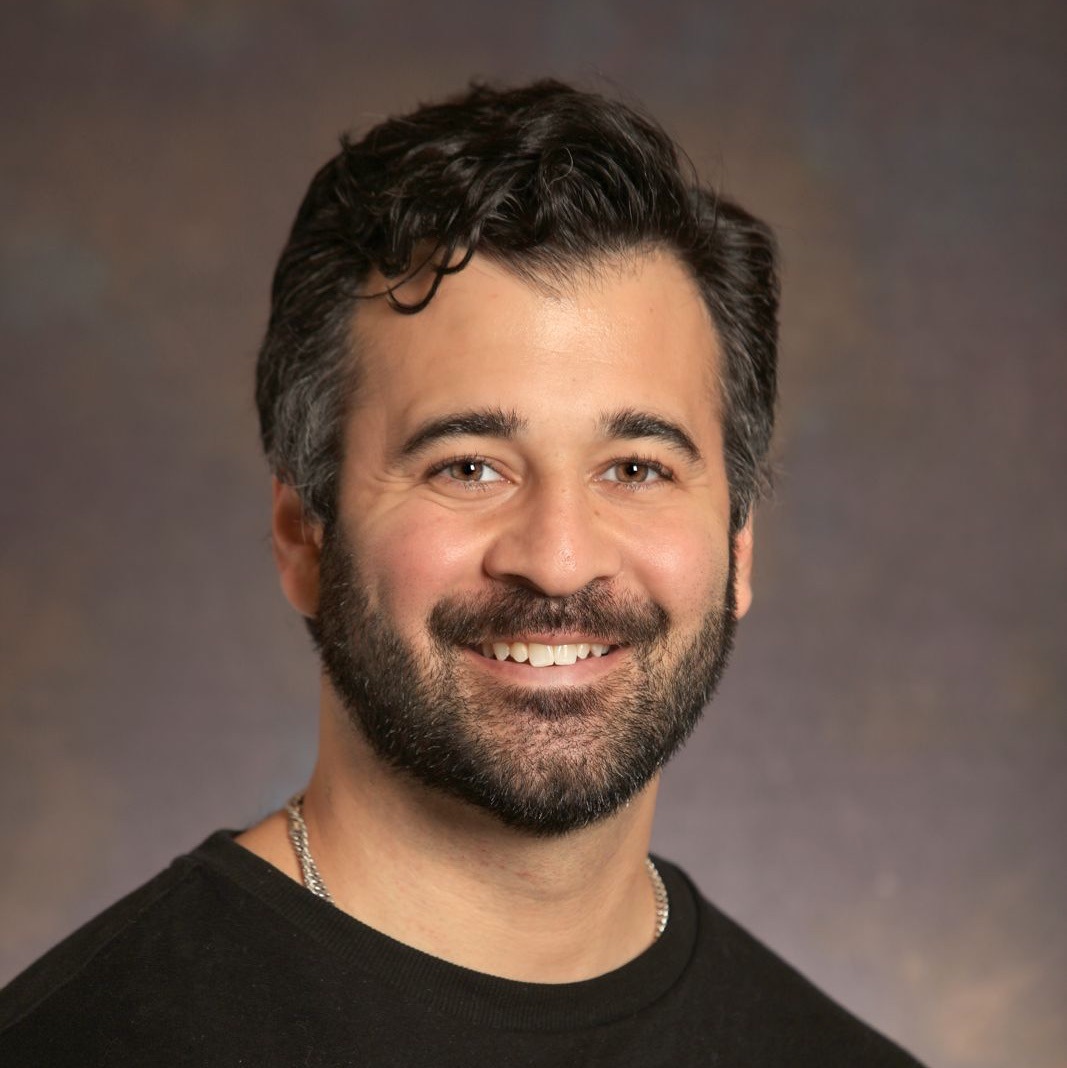#51 – Lancaster County’s Dr. Norris Williams on Education’s Shift Toward Student Voice


Deputy Superintendent of Lancaster County School District

Co-Founder and CEO of Subject.com
Michael Vilardo (00:12–00:52):
Welcome back to another episode of On the Subject. I’m your host, Michael Vilardo, co-founder and CEO of Subject, Subject.com, Subject.ai. You know where to find us, but today we have an incredibly special guest. We are so excited because we’re going around the country to find the most innovative educators in education.
Today is our first time in Illinois. We’re in the heart of the windy city, Wrigleyville, to be exact, at the Media and AI Education Conference, where we’re so excited to highlight an innovator not from Illinois, from South Carolina, Dr. Norris Williams. He’s the deputy superintendent at Lancaster County. He’s been in education for nearly two plus decades.
We’re so excited to be able to highlight all your innovative strategies. Thank you for being with us today.
Dr. Norris Williams (00:52–00:53):
Oh, thank you for having me.
Michael Vilardo (00:53–01:09):
Yeah, we’re so excited. And you are our first educational leader from the Southeast in general.
And so we’re really proud of that because we want to have voices throughout the entire country represented. What do you think, for you, has made you so passionate about helping students? Why did you get into education?
Dr. Norris Williams (01:09–01:25):
For me, I became an educator just because I knew that was the pathway for so many students to obtain success. Once you gain those credibilities and obtain credentials, you can write your path. And so that was one of the leading factors for me.
Michael Vilardo (01:25–01:47):
I love that. And we talk about social mobility, social equity and how we can be able to fight that. With education to help these students have the best chance for themselves and their families of fulfilling exciting lives. What have you seen so far across your time in education change the most?
We talk about how every five to 10 years, there’s clear cultural changes. Is there anything you noticed in 2025 that was different in 2010?
Dr. Norris Williams (01:47–02:12):
I would say that the shift is really toward the student. There is the focus on the student, the individual success, those individual pathways of instruction for students. So that they can demonstrate both the talents that they have, they exhibit those qualities that they’ve been taught, whether it’s from home or learned in school. But the focus is on the student and then furthermore, how they will be a positive contributor to society.
Michael Vilardo (02:12–02:33):
I love that. As a student, we say when the curriculum adjusts to the student instead of the other way around, the student has a much better chance of being engaged with the product, with education and being really excited about the learning opportunities that are ahead of them, you talked about. We had a brief moment out there and shout out. Your panel was incredible, so inspiring, and really the entirety of the panel, so many great, diverse perspectives.
Michael Vilardo (02:34–03:21):
You really were able to mention a lot about how we’re seeing AI, not only in high school and middle school students who are true digital natives. What have you noticed across Gen Z to Gen Alpha, this transition that you’re really excited about in terms of centering even more around the student?
Dr. Norris Williams (03:21–03:53):
I’m super excited about the independence of students these days. They’re not waiting for things to happen for them, they’re creating that change that they need.
And for the most part, in very positive manners. And so we’re seeing more entrepreneurs, more self thinkers, business starters now, and that is so exciting. Whereas in, they’re not following this pattern that was traditional, but they’re setting their own paths. And that, to me, that’s exhilarating because they are now the leaders that we used to talk about of the future.
The future is now, and they’re demonstrating that every day.
Michael Vilardo (03:53–04:19):
Yeah, and we talk about entrepreneurial endeavors and content creation. So many pathways for these students to really express themselves. I think it’s really great because in education, we can now be able to access so many more data points of student voices, which makes it really impactful.
You’ve been at this conference now for several days, we’ve been able to really connect with a lot of different regionalities. Is there anything that surprised you around the last, let’s call it 24 hours and something that you really were excited to learn more about?
Dr. Norris Williams (04:19–04:43):
So the differences, I think, being from the south, particularly the southeast, the differences in structures that we have. In school. Just hearing other peers talk about their districts or their positions, and I’m like, wow, okay, that’s quite different than what I’m used to.
I’m born in South Carolina, been there for 26 years now as an educator, and so hearing the perspectives of individuals that are from other areas is both intriguing as well as very conversational.
Michael Vilardo (04:43–05:22):
It’s so fun, I love that we’re lifelong learners here, and just being able to ask questions is so much fun. Hey, what do you think of this?
What do you think of that? And learning from our peers is so powerful. When you think about the next 10 years across education, what would you love education to look like in 2035? Or, by the way, your panel talked about 2040, preparing students for 2040, what would your aspirational view on education be for that lens?
Dr. Norris Williams (05:22–06:03):
So in the panel discussion, I mentioned us, everyone in the room and everyone having a cell phone or some type of device for communication. And based on your likes, your interests, your profession, your phone is creating pathways or using algorithms that are guiding you to the things that you’re most interested in. I really think that’s where education is headed. No longer will be the days of us sitting collectively in a classroom. Where individuals are presenting, getting presented information from one individual or a small group of individuals, it will be very individualized.
The landscape of education is going to be super different and I will say I am very excited about it.
Michael Vilardo (06:03–07:04):
I love that. It’s all about positivity, positivity breeds other positives.
It’s contagious. I love being able to be around your ideas and your passion for future. We want to embrace the future, not say, oh, those were the good old days. It’s so much more powerful to embrace the moment, and I love that mindfulness approach.
The one piece we do always love to culminate these conversations with is gratitude. We have a big theme of positivity and gratitude here at Subject. And so what we would love to do and invite you to do is if there’s a teacher or student who’s impacted you and your life that you would love to shout out and thank you to the camera…. I’m sure there’s many, but if there’s any one that came to mind, a teacher or student, any of your choice, we’d love to say thank you to. We’d love to hear it.
Dr. Norris Williams (07:04–07:30):
First, I would like to shout out to my wife. Her name is Serena Williams. Amazing. I love it. Serena has been my backbone, my supporter, encourager since we met at South Carolina State University.
18 years old. She’s always been there for me to welcome ideas. But Serena is, I’m a visionary, and Serena is a very details oriented individual, so we couple each other very well.
So thank you so much sweetheart for always being a supporter. And then the other individual is Mrs Diane Frierson. Mrs. Frierson was my economics and American Government teacher at Maywood High School in Sumter, South Carolina, in the 90s.
I still keep in contact with her to this day. She was, in my opinion, a precursor to how you effectively manage yourself in society as a positive citizen, while also learning American government and economics. Hats off to Serena and shout out to Mrs. Diane Frierson from Maywood High School.
Michael Vilardo (07:30–07:32):
Amazing. That is a very emotional piece. I love that and see a lot of positivity, real human connection. That’s what’s able to inspire future students. Peer leadership roles. Dr. Norris, thank you so much for your time today.
And please comment down below, subscribe. We’re really trying to push our listeners to YouTube and or Spotify so we can have more incredible, innovative educational leaders like Dr. Norris on the pod real soon. Thank you so much for your time, thank you.
Dr. Norris Williams:
I appreciate the opportunity. Thank you.
345 N Maple Dr. STE #130
Beverly Hills,
CA 90210, USA
Support
contact@subject.com
Academics
accreditation@subject.com
Customer Hub
Login
Support
Success Stories